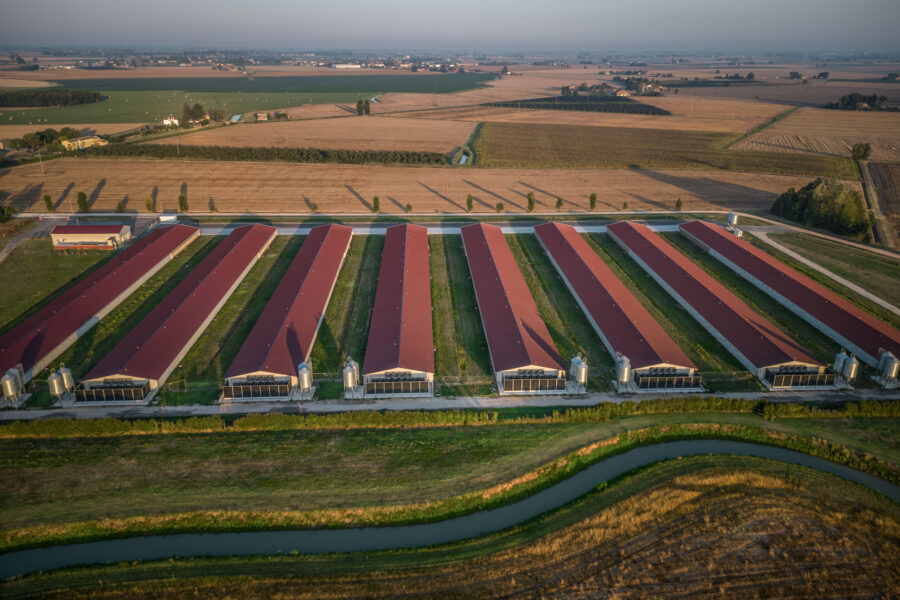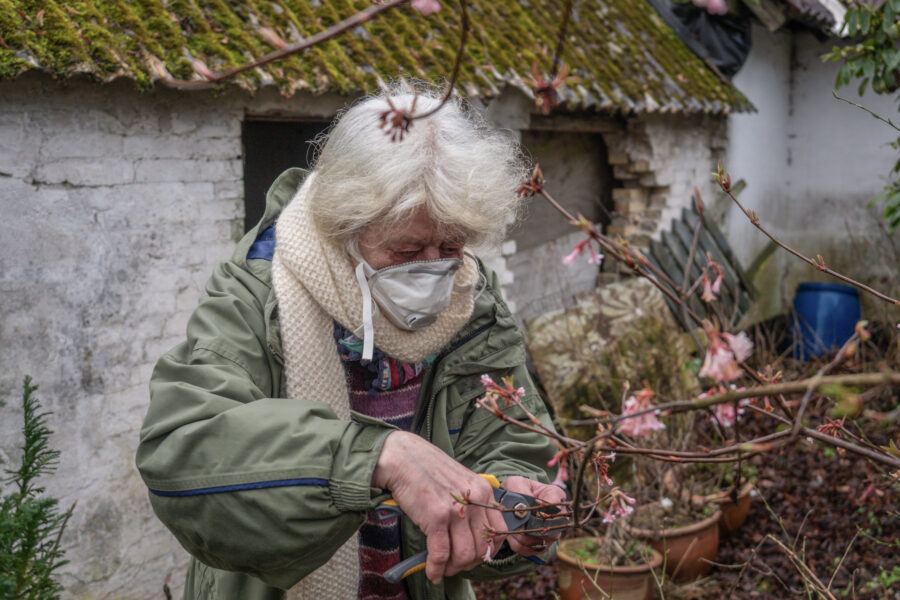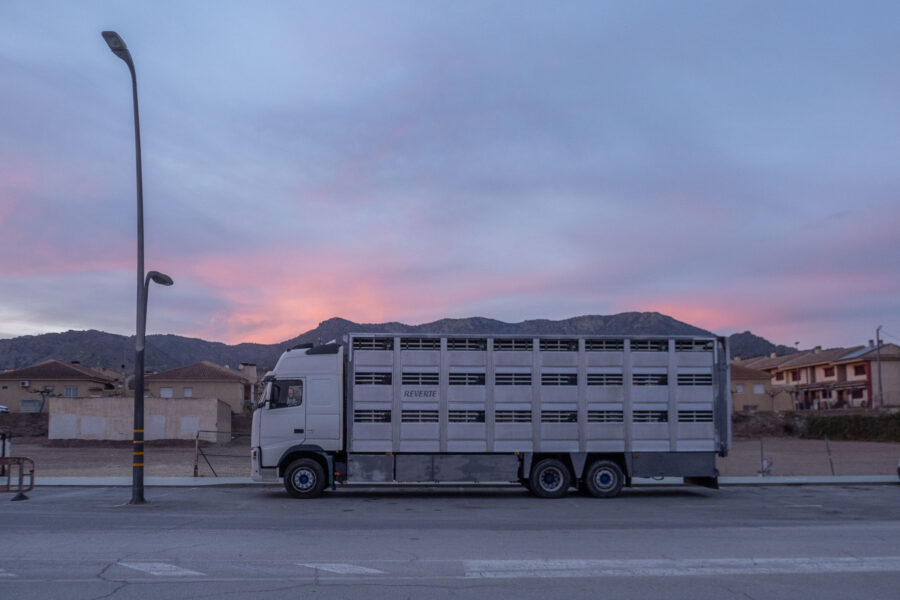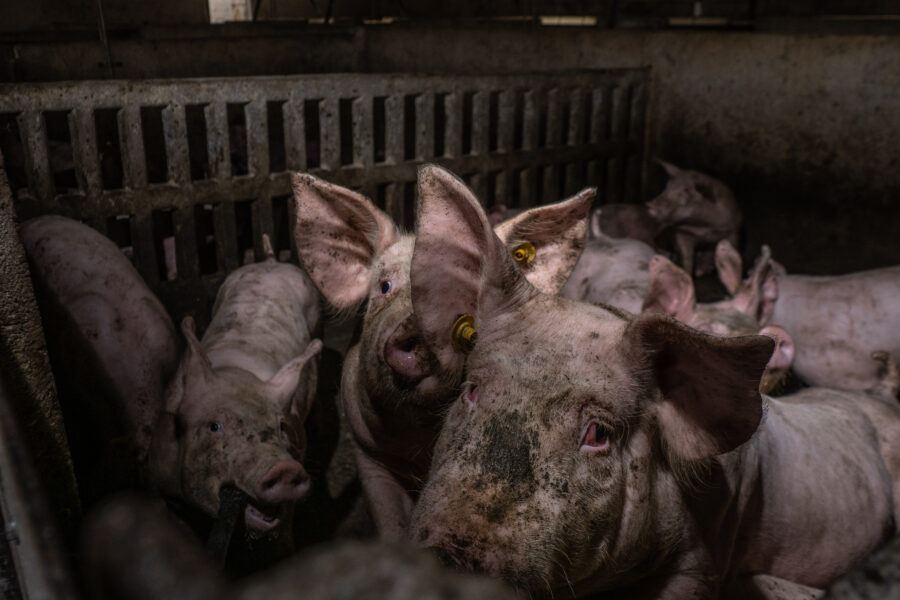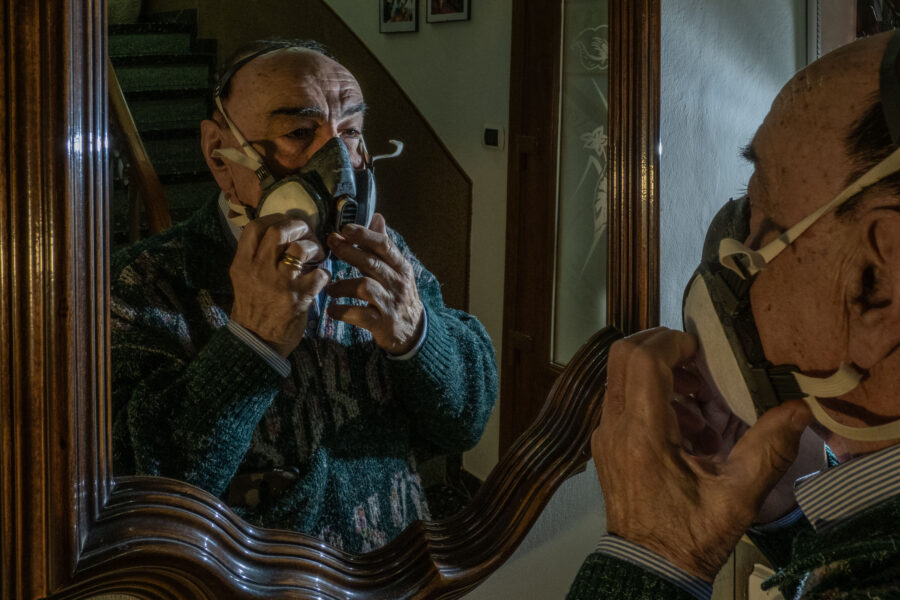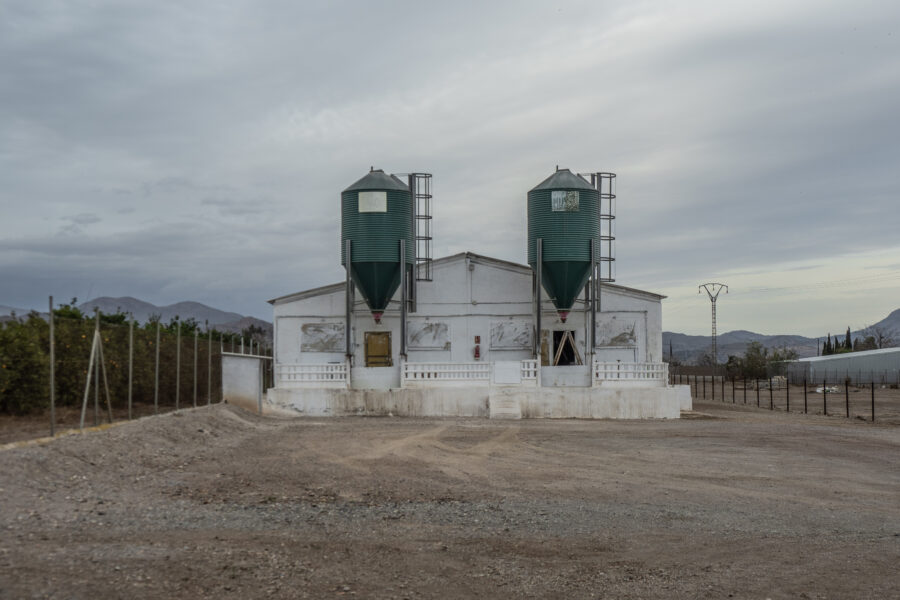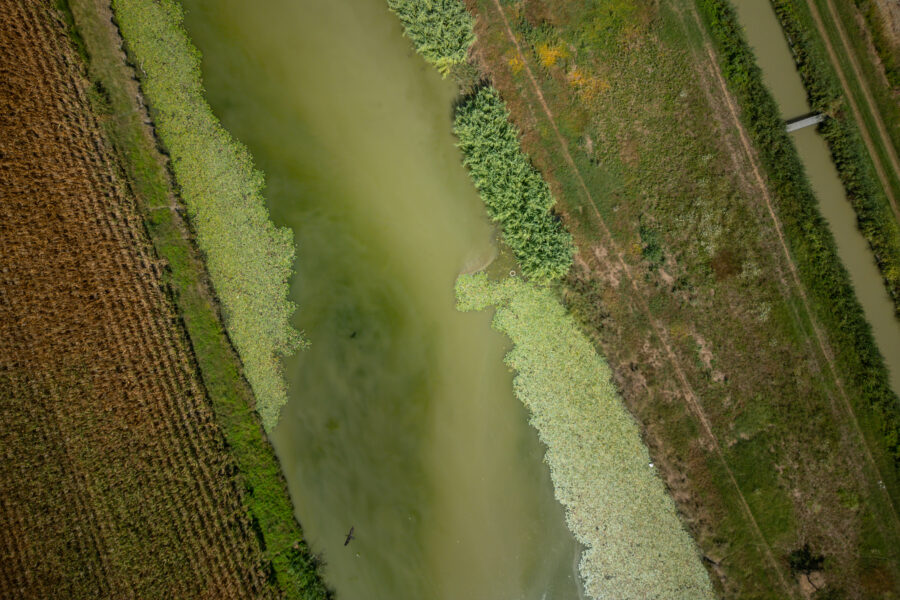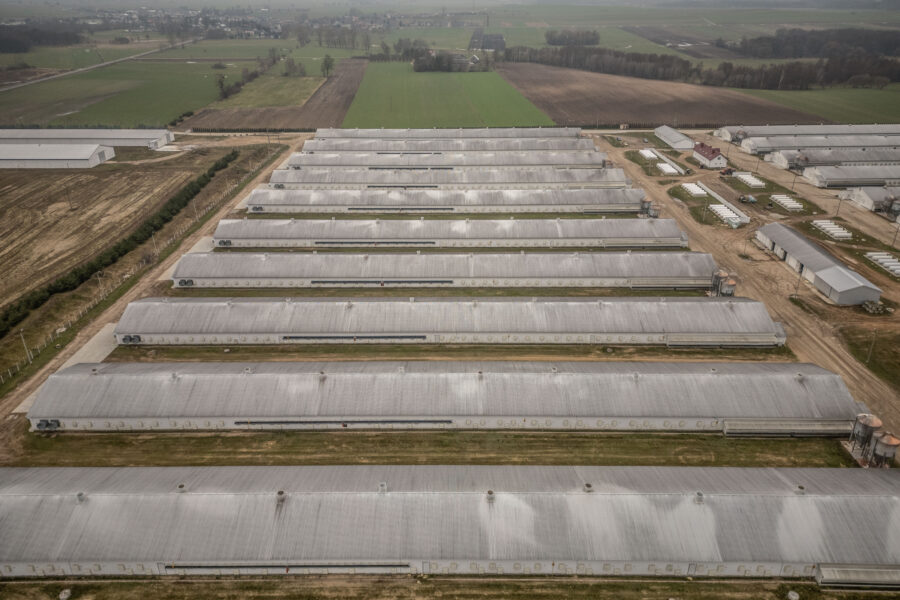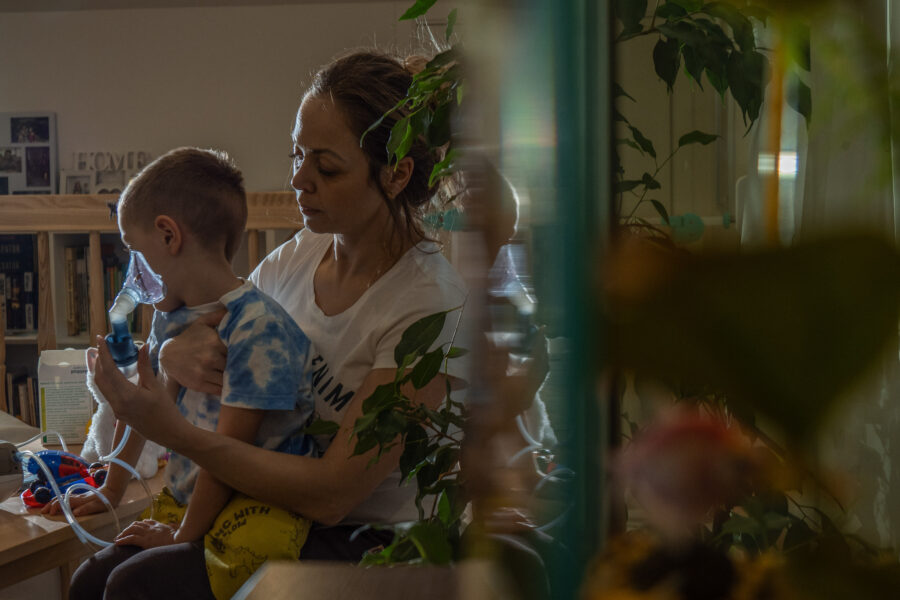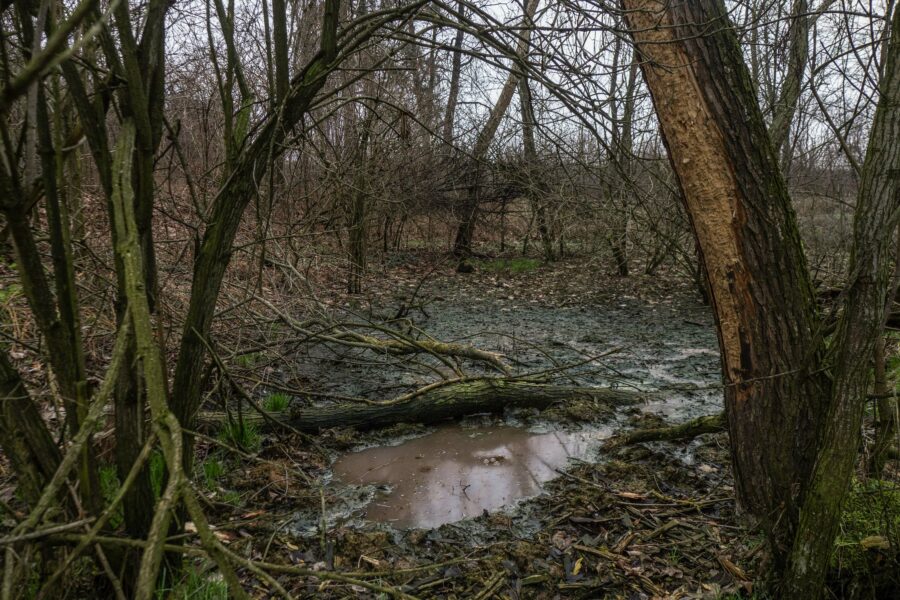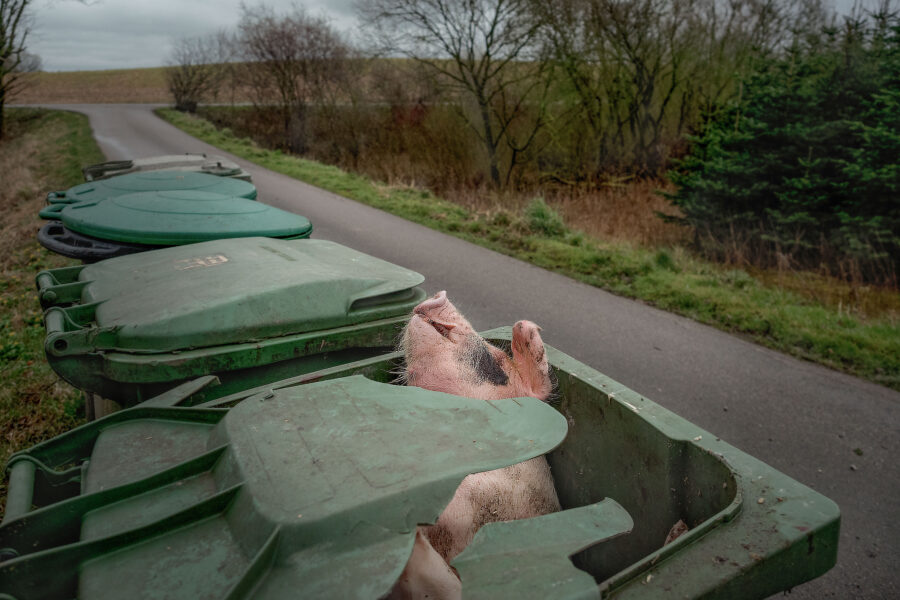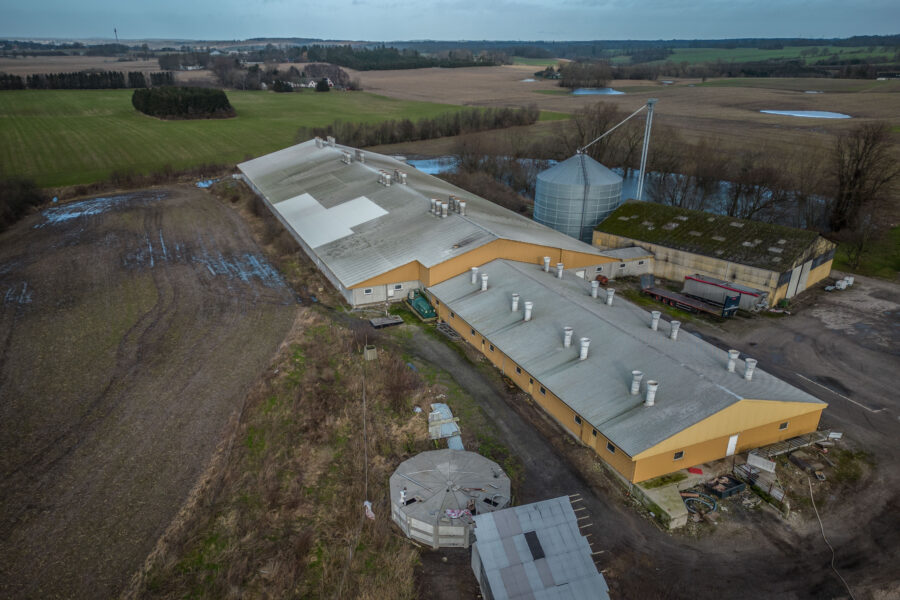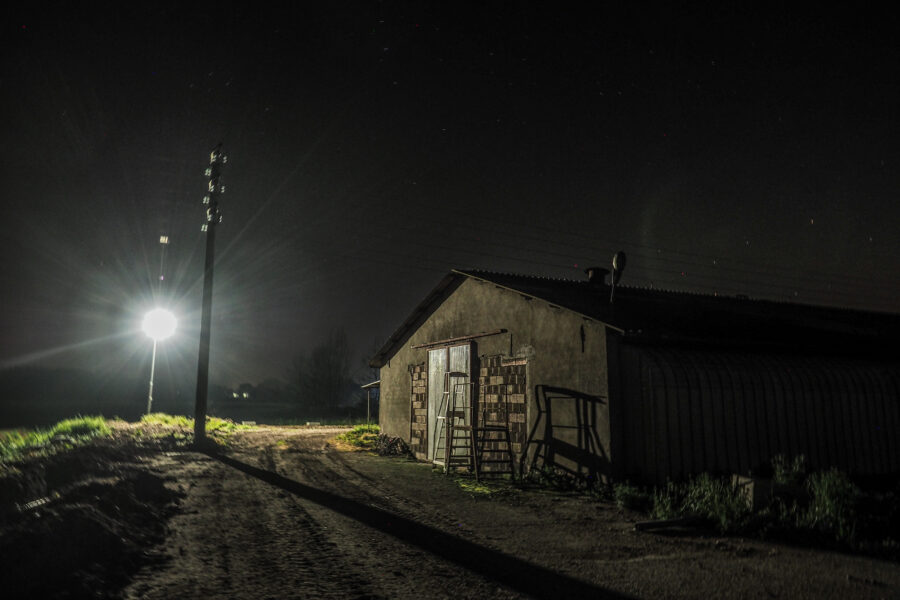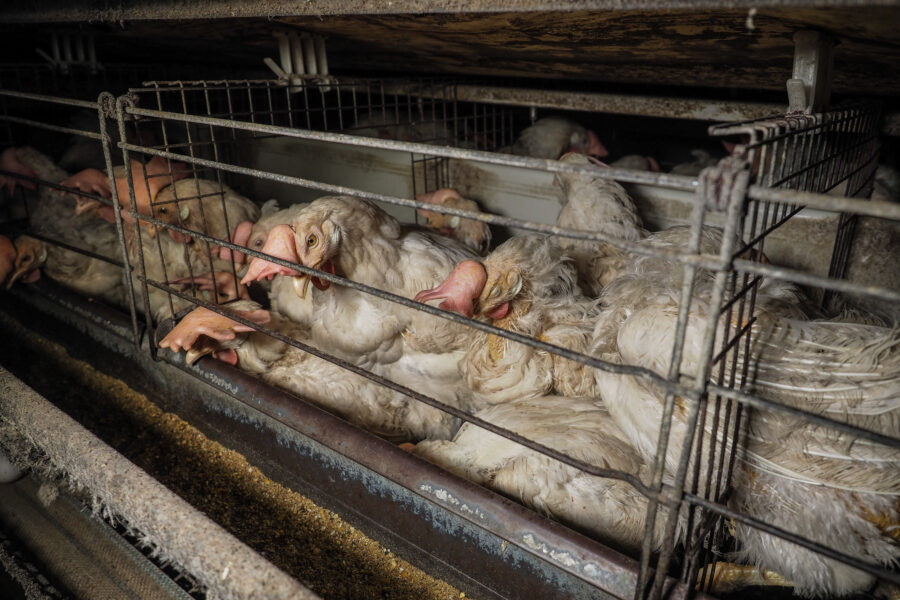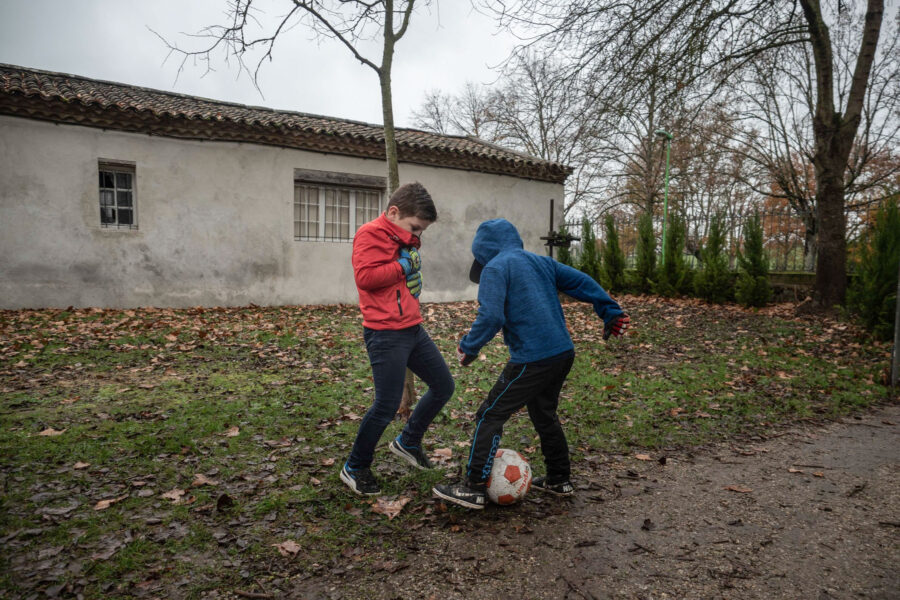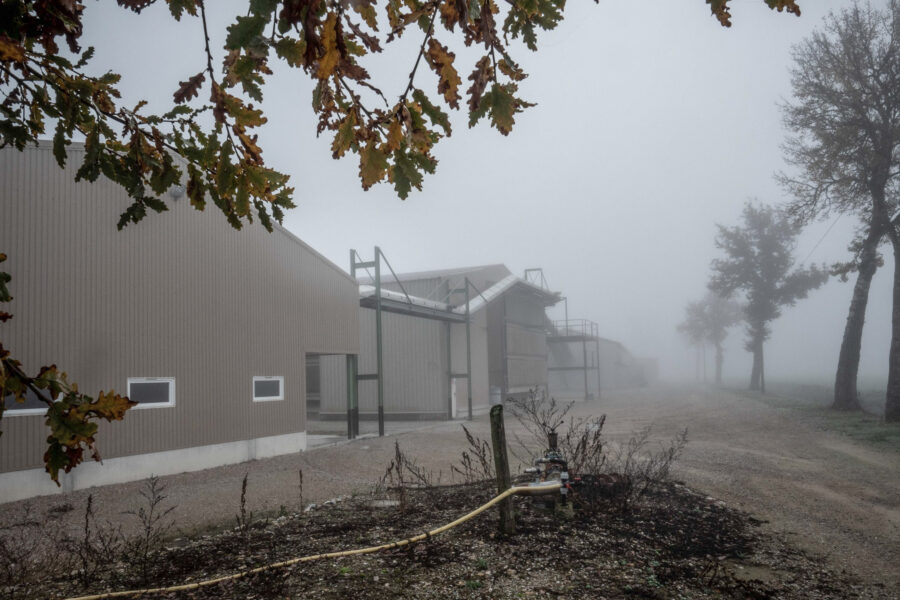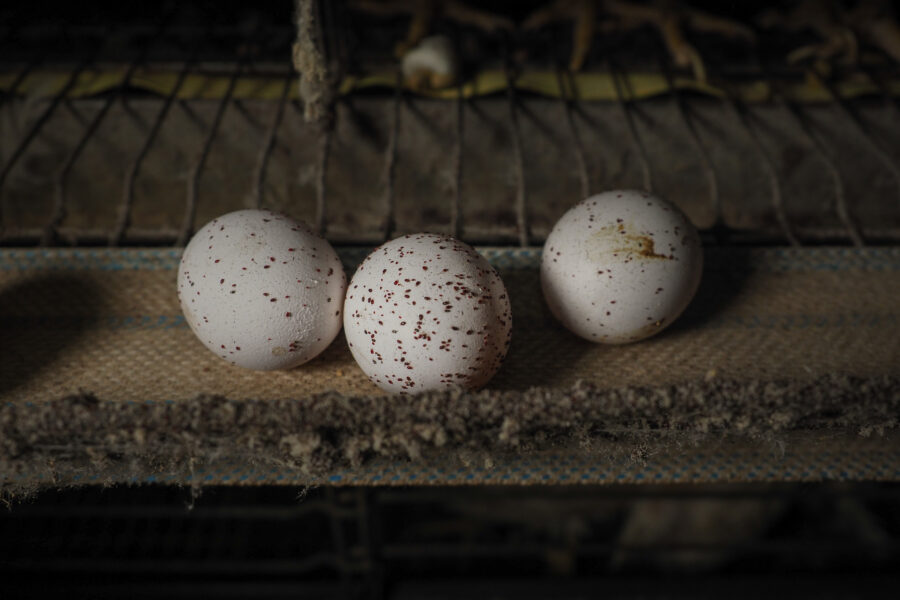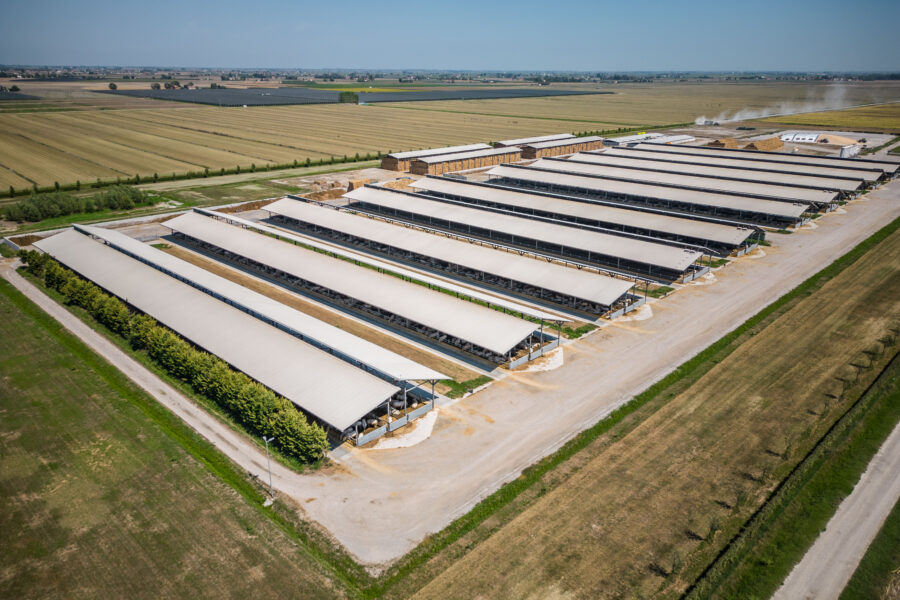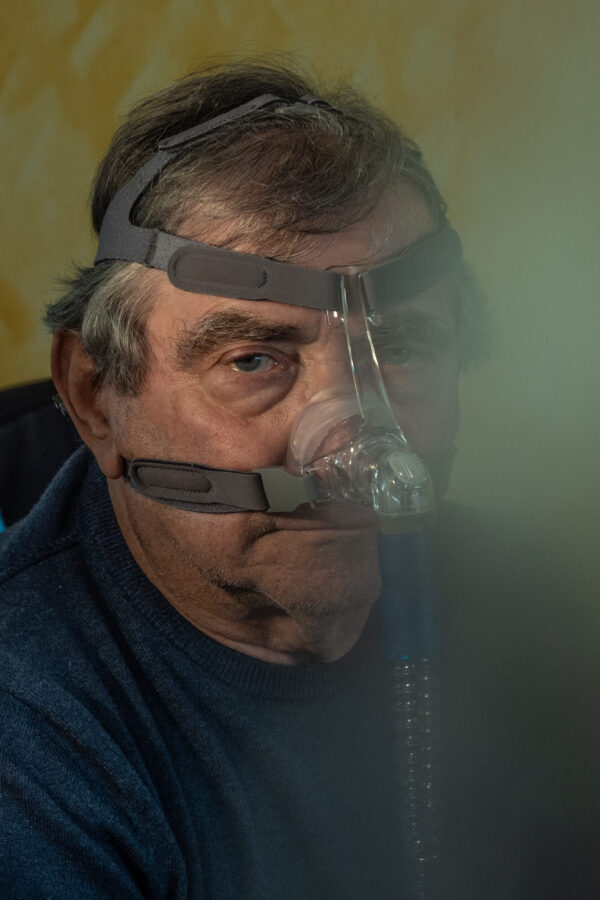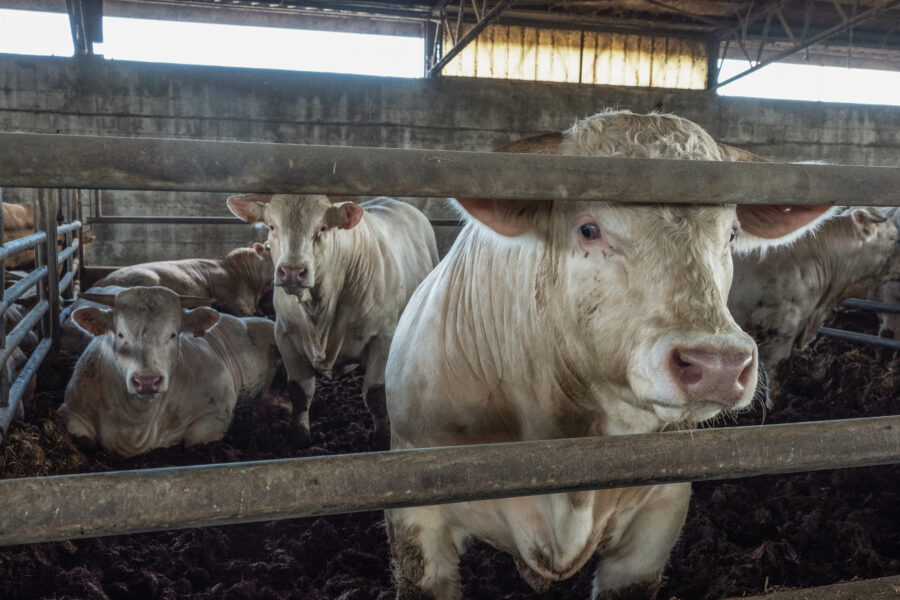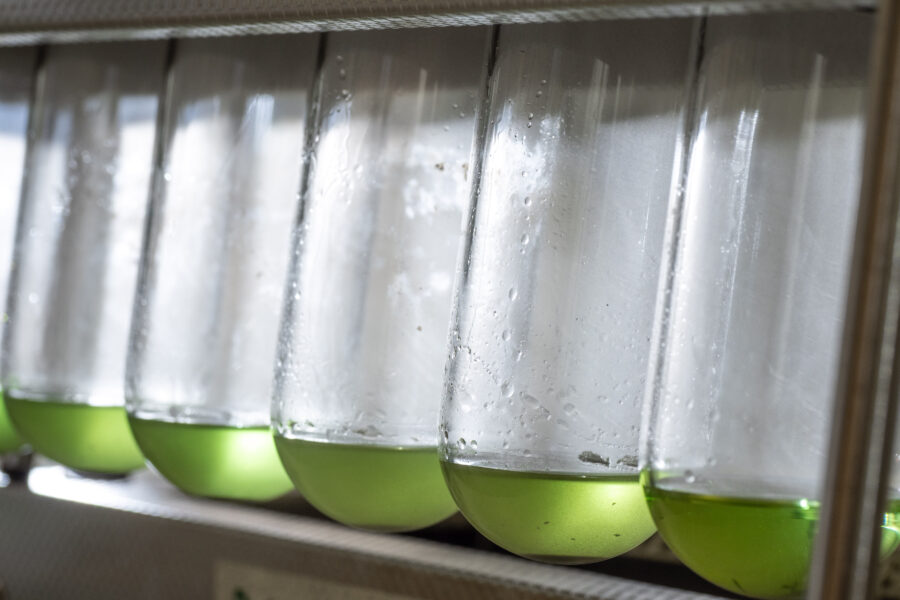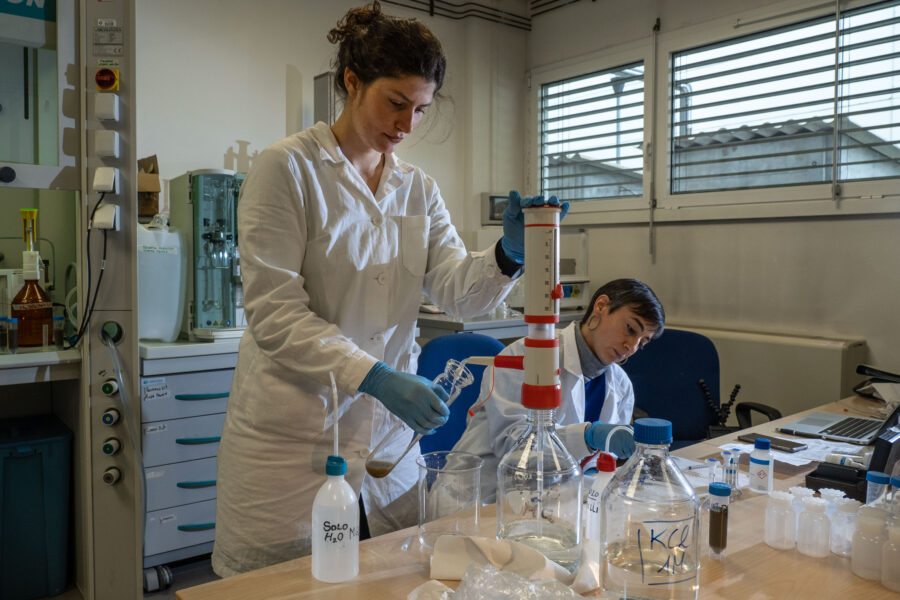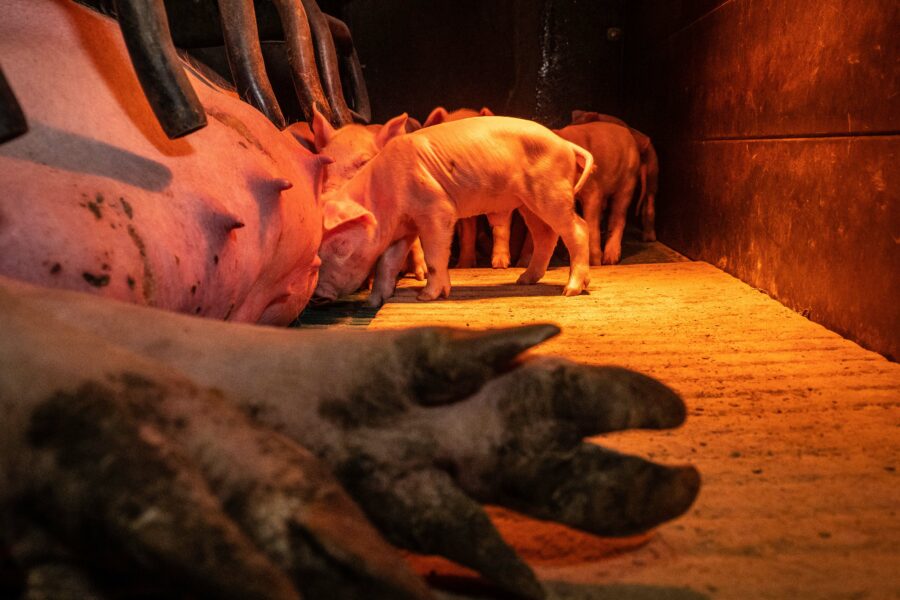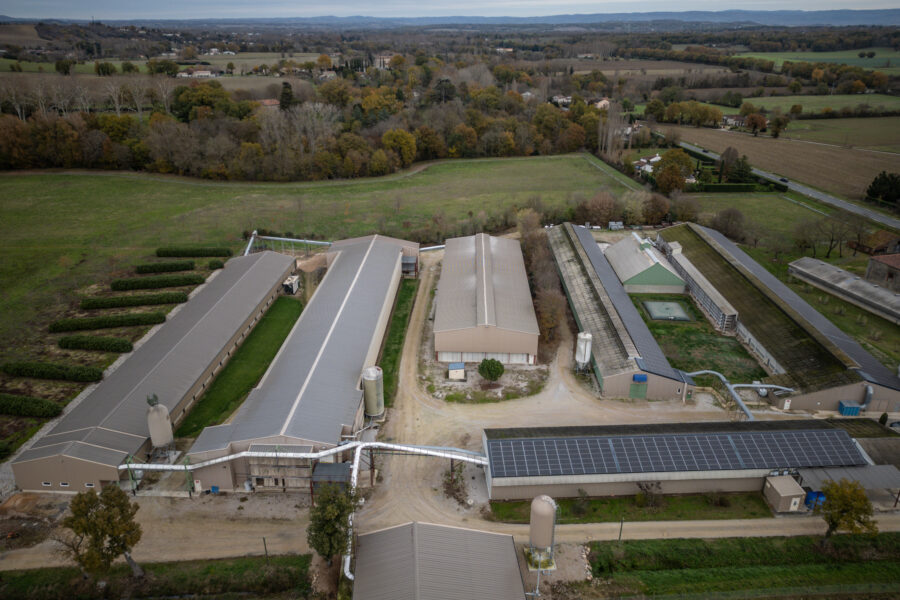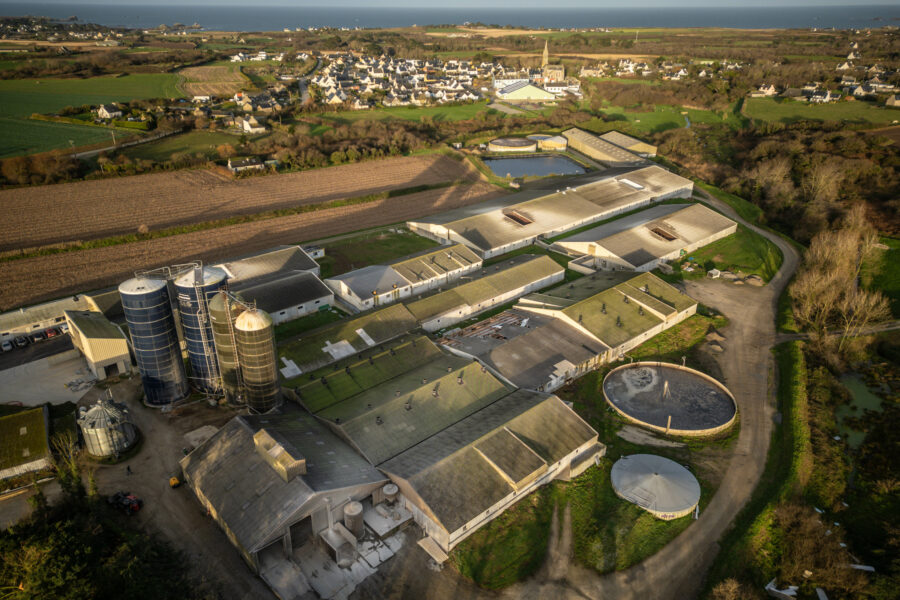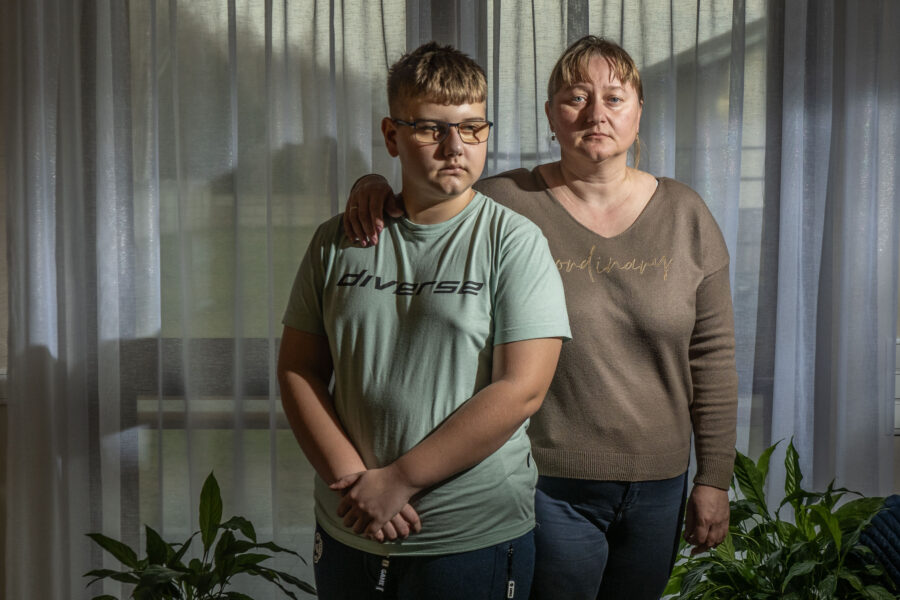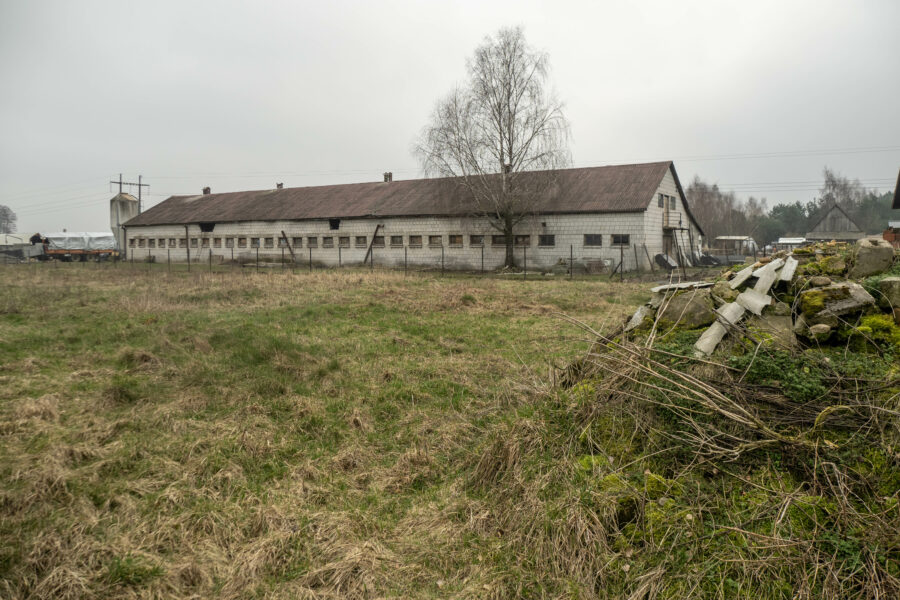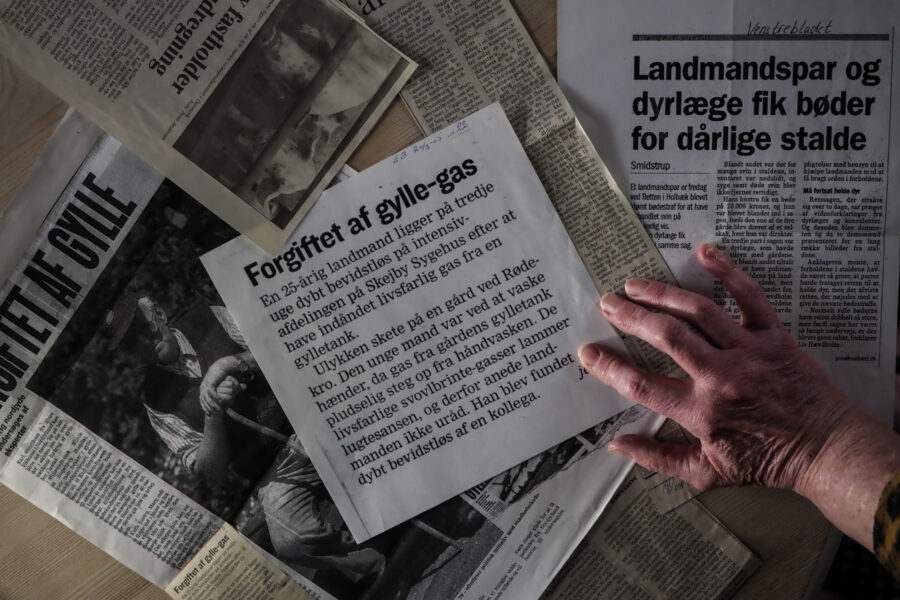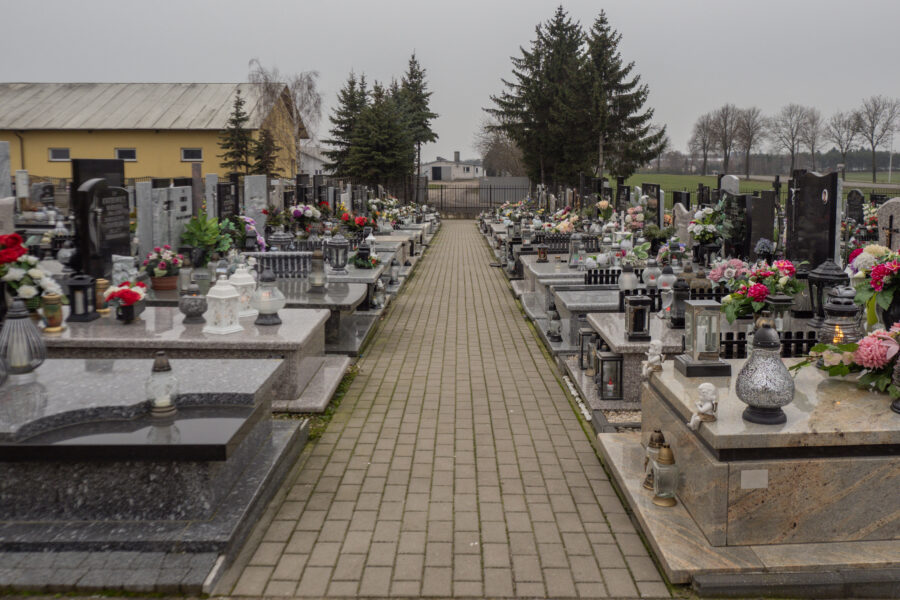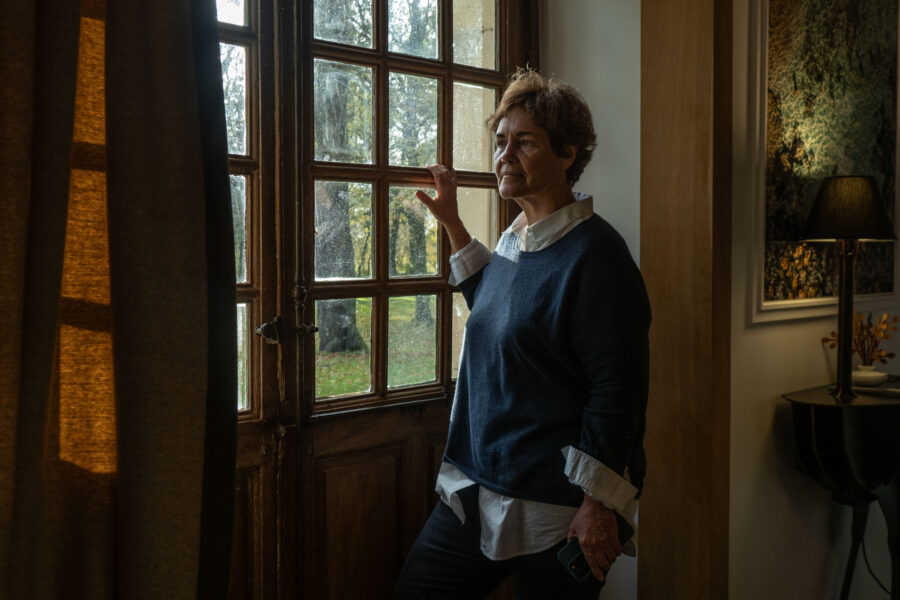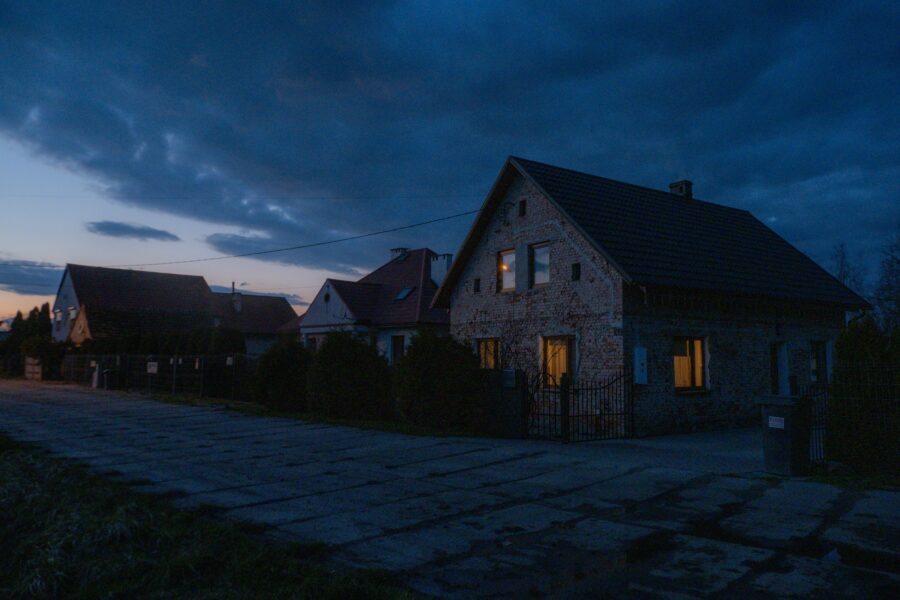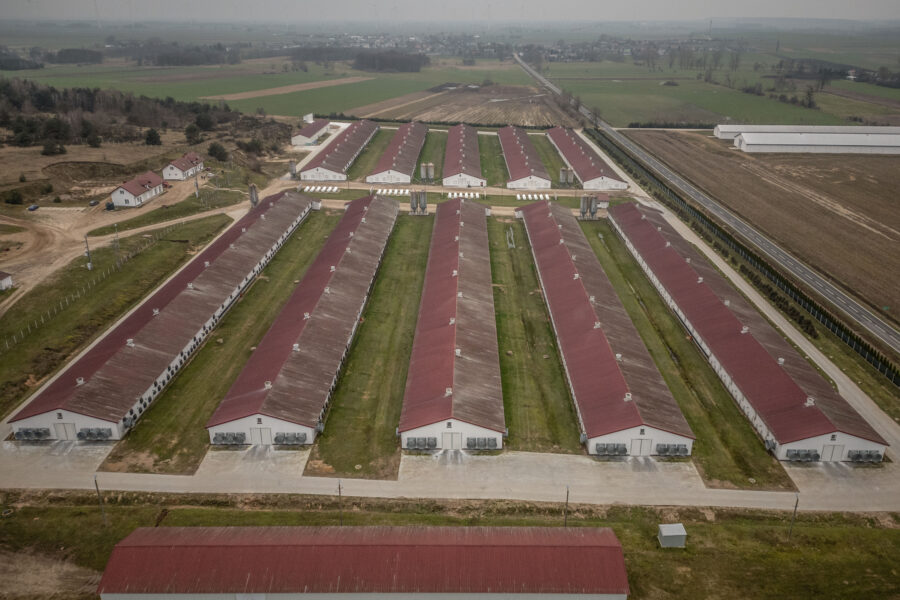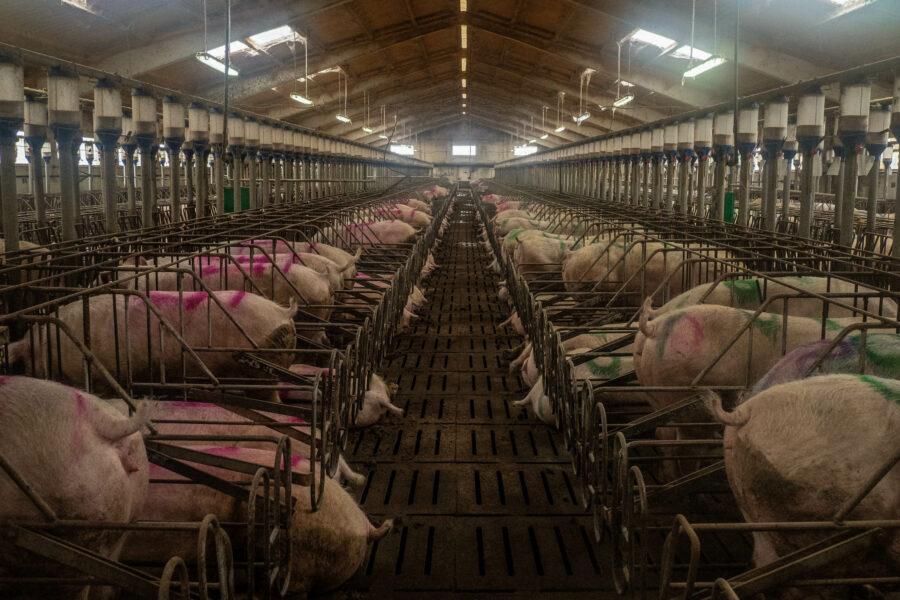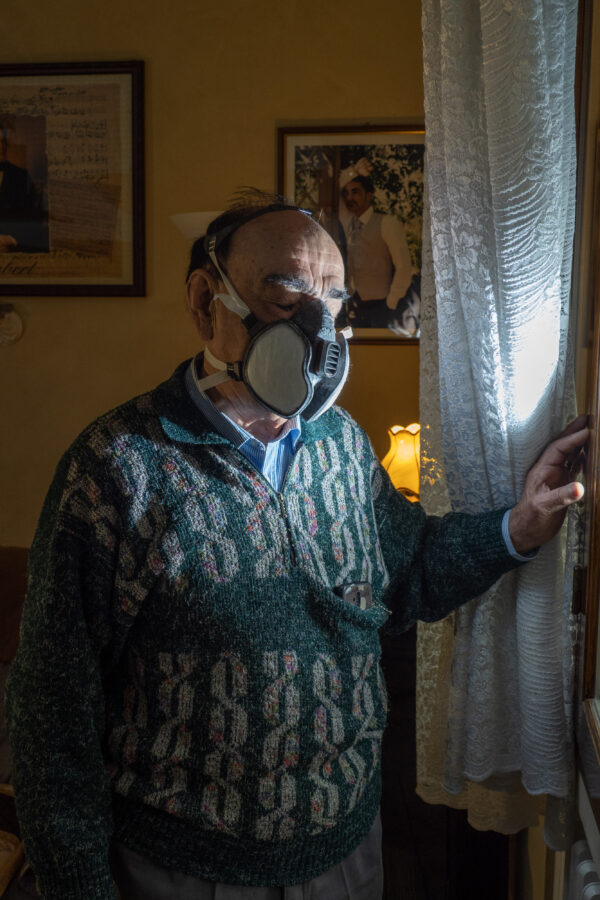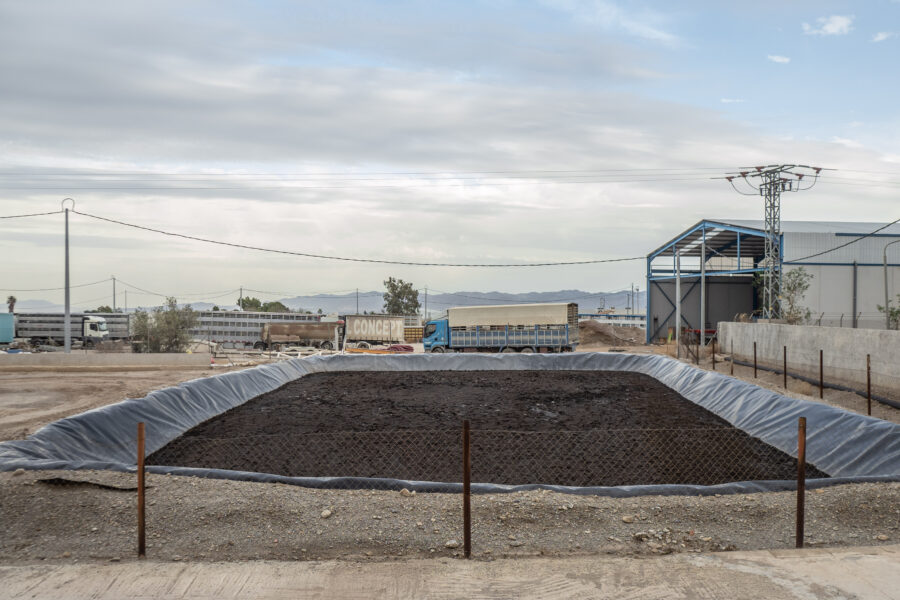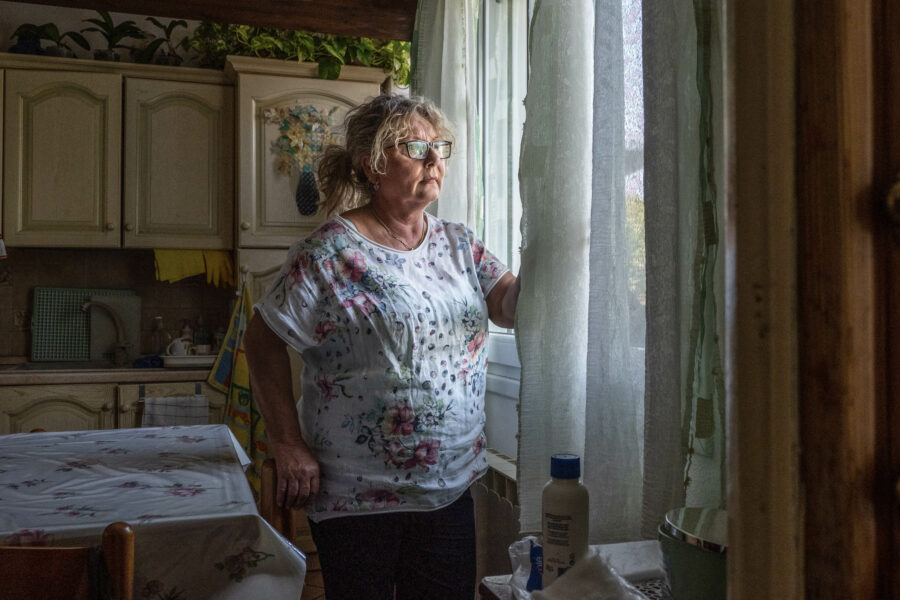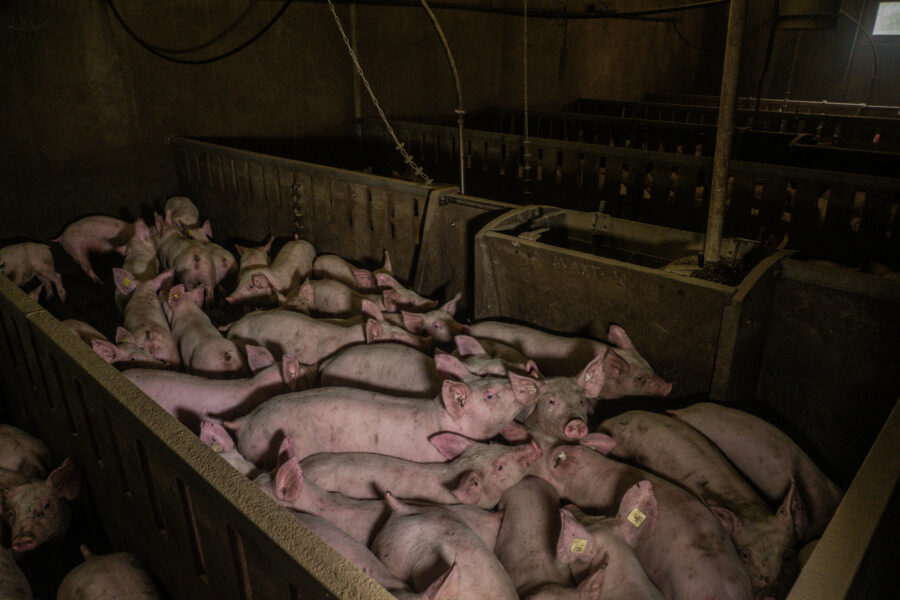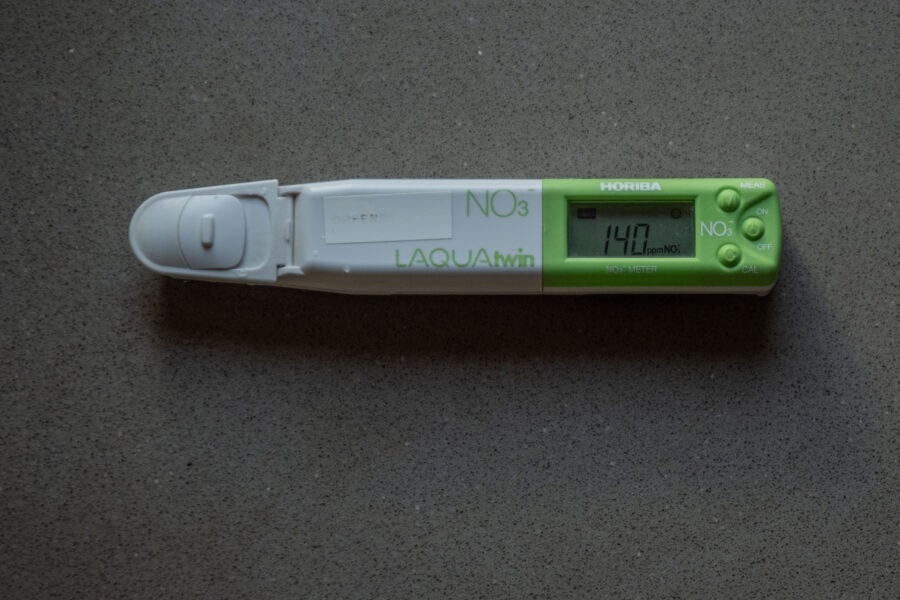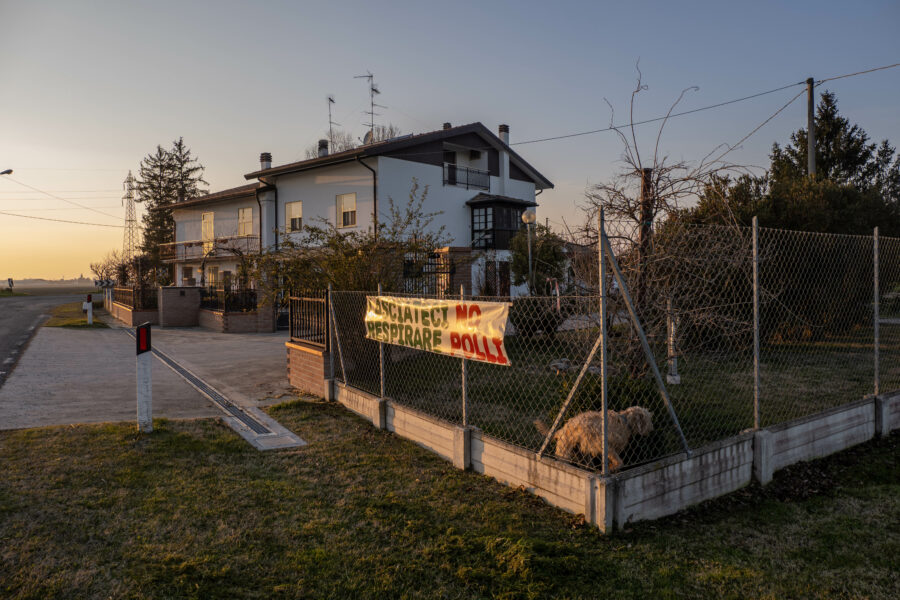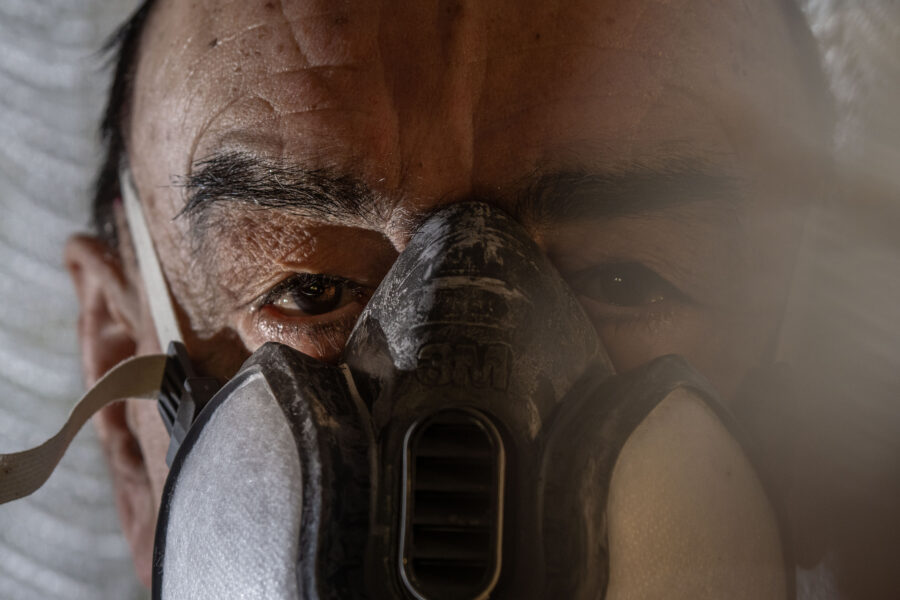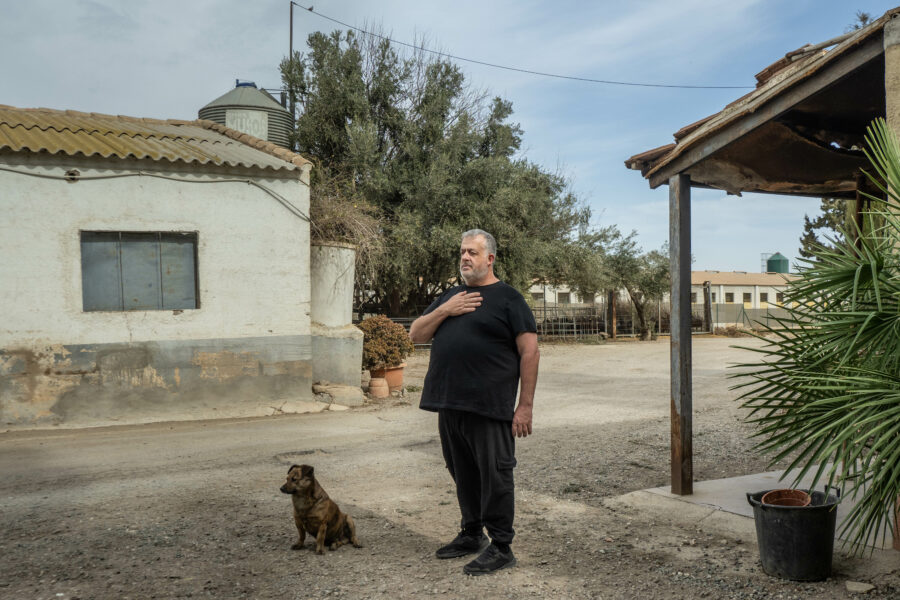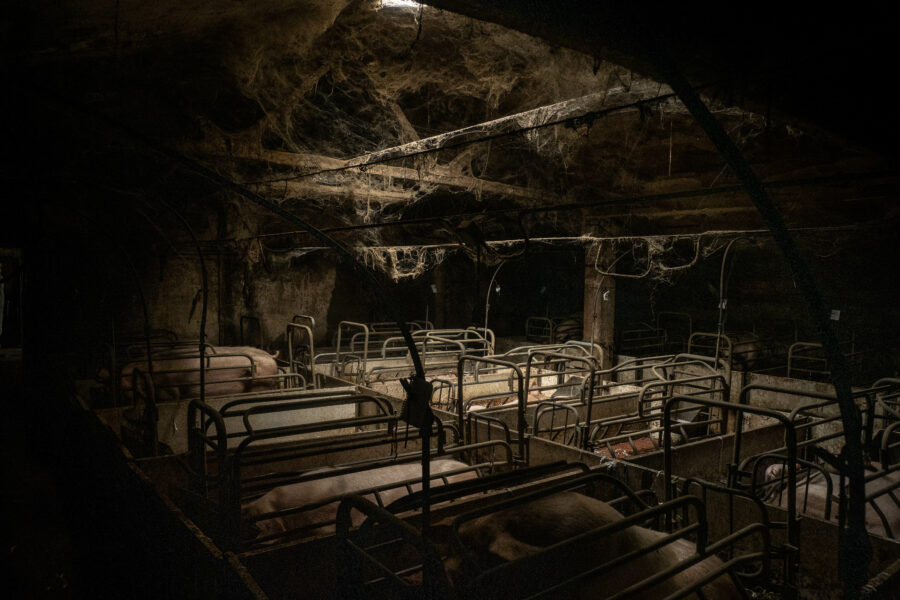Long Shadow
Life in the shadow of factory farms in Europe
With the sizeable livestock population of 142 million pigs, 76 million bovine animals and a further several billion chickens farmed every year, the volume of Europe’s factory farming sector has exceeded what the scientific community have claimed are safe bounds for greenhouse gas emissions, nutrient flows and biodiversity loss. Its implications for the climate crisis, role in health emergencies globally, and impact on human rights make factory farming one of the most relevant topics of public interest of our time.
Long shadows are casted around factory farms, locally and nearby. Noise, smell, air toxicity, chronic disease, water pollution: factory farms project negative externalities that hit neighbouring communities first, often transforming local ecologies and endangering health and welfare.
In a time characterised by increasingly frequent extreme novel epidemics and pandemics, many scientists claim that factory farms have become dangerous pathogenic breeding grounds. Their unique conditions (such as density of livestock) and their production needs and consequences (such as gas emissions, pollution of air, water and soil) create considerable risks for human health both on a wide scale and for those living in immediate surroundings.
The first at risk of infection are local workers and nearby dwellers.
In recent years, the European livestock sector has expanded, while being characterised by an increasing concentration of living bodies in fewer and larger industrial farms. Over 72% of all European livestock products now come from industrial factory farms, which represent a highly concentrated source of noise and pollution. Ammonia emissions cause dangerous forms of air pollution in many rural areas. The pollution of water sources caused by factory farms is responsible for over 320€ billion of damage each year. Factory farms often contaminate the air with hydrogen sulphide, a gas that can cause flu-like symptoms in humans and has been recently linked to brain damage. Research by the Max Planck Institute for Chemistry shows that agriculture (especially factory farming) contributes around 45% of the fine particle emissions (PM2.5) in Germany that lead to 120,000 premature deaths from cardio-vascular disease. Moreover, across the whole of the European Union, several million people are potentially exposed to drinking water with nitrate concentrations above recommended levels.
Several million people are potentially exposed, with some documented, to drinking water with high nitrate concentrations in Europe, that has been proven to significantly increase cancer risks too.
Evidence suggests that living near a factory farm decreases basic quality of life. Strong odours force residents to keep their windows closed and stay indoors, depriving them of fresh air. Emerging research shows that those living in the proximity of a factory farm are at higher risk for disease, such as respiratory problems and neurobehavioral disorders. Workers within factory farms suffer the same health impacts as nearby community members: toxic emissions from manure pits have caused worker deaths in the recent past.
Many local communities across Europe are mobilising in response to the rising cost of factory farming - in terms of environmental damage, social welfare and loss of life. Long Shadow aims to report and compare how local communities live with and struggle against factory farming across several European countries: Italy, Denmark, Poland, France and Spain.
This project is currently in the making as part of the WeAnimals Media Fellowship and with the support of the Environmental European Journalism Fund Grant.
